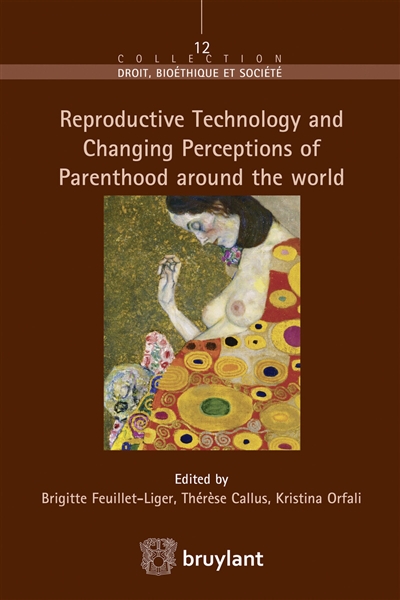en savoir plus

Carte fidélité
Permet à tous ses détenteurs d'obtenir 5% de réduction sur tous les livres lors du retrait en magasin (réduction non cumulable avec les réductions de type étudiant).
Offre également un certain nombre d'avantages auprès de nos partenaires.
Wishlist
Avec les favoris, retrouvez dans un espace les sélections effectuées au fur et à mesure de vos navigations dans le site.
Constituez pour votre usage personnel vos listes de livres en prévisions d'achats futurs et votre sélection d'articles, dossiers, événements, vidéos ou podcasts préférés ou à découvrir plus tard...
Il suffit simplement de cliquer sur "Ajout Favori" sur chaque page qui vous intéresse pour les retrouver ensuite dans votre espace personnel.
Requiert un compte Mollat
Mes Alertes
Requiert un compte Mollat
Reproductive technology and changing perceptions of parenthood around the world
en savoir plus
Résumé
Des spécialistes en droit et sciences humaines et des philosophes de 17 pays différents proposent une réflexion sur les changements de perception de la parentalité liés aux nouvelles pratiques biomédicales. ©Electre 2025
Lire la Quatrième de couverture
Réduire la Quatrième de couverture
"If there is no humanity without language, nor can there be a society without parenthood. But what does it mean to be a parent?" This question from Claude Levi-Strauss is at the heart of this international and multidisciplinary study analysing the impact of biomedicine on the legal recognition of family ties. As a result of the heady advances in new biomedical practices, a number of questions concerning parenthood needs to be addressed. Who will be the legal father and mother of a child when infertile men and women are able to procreate? Will the child still have two parents of different sexes, or could she sometimes have three, or even four?
What about the emergence of the concept of parenting and of the role of DNA testing in determining parentage?
Legal experts, philosophers and sociologists from seventeen countries each with different cultural backgrounds, debated these, and other, issues during the fifth workshop of the Réseau Universitaire International de Bioéthique (International Academic Network on Bioethics). Informed by these debates, the articles brought together in this book explore the extent to which new biomedical practices have revolutionised access to parenthood in these countries. There can be no doubt that because this topic touches on sexuality, the body and reproduction - each a different concept in different cultures - one conclusion stands out: although the life sciences have now succeeded in controlling the creation of life, the effects of biomedicine on the legal structure of the family differ considerably from one country to another. A harmonisation between the various systems studied would be most welcome.
Fiche Technique
Paru le : 02/09/2014
Thématique : Droit de la santé - Hospitalisation
Auteur(s) : Non précisé.
Éditeur(s) :
Bruylant
Collection(s) : Droit, bioéthique et société
Contributeur(s) : Editeur scientifique (ou intellectuel) : Brigitte Feuillet-Liger - Editeur scientifique (ou intellectuel) : Maria-Claudia Crespo Brauner
Série(s) : Non précisé.
ISBN : 978-2-8027-4755-0
EAN13 : 9782802747550
Reliure : Broché
Pages : 384
Hauteur: 24.0 cm / Largeur 16.0 cm
Épaisseur: 2.3 cm
Poids: 590 g
